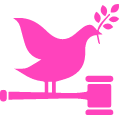MAURITANIA
BACKGROUND AND CONTEXT
Mauritania is considered an island of stability in a rough neighbourhood. Spillovers from latent and manifest conflicts threaten at its northern, southern, and eastern borders. The manifest conflicts at the eastern and southeast borders with Mali connect Mauritania to hubs of violent extremist groups, transnational crime, and illicit trafficking networks spanning across the Sahel and North Africa. The country experiences profound social, economic, and demographic mutations that rejuvenate generational conflicts and tensions. The depths of existing social fissures and socio-political tensions, pose conjugated challenges to Mauritania’s relative immunity to violent extremist attacks since 2012.
Key drivers of violent extremism in the Sahel include high levels of youth unemployment, recurring farmer-herder conflicts, and persistent governance-related grievances. Terrorist and violent extremist groups exploit these vulnerabilities by promoting narratives of injustice and offering protection in exchange for loyalty, thereby further destabilising already fragile communities. GCERF began investing in the country in 2024 and till date USD 3 million has been invested to address these drivers of violent extremism.
OUR INVESTMENT STRATEGY IN MAURITANIA
GCERF’s investment strategy outlines a comprehensive approach to address the drivers of violent extremism and guides civil society organisations in designing their programmes.
GCERF funds programmes that:
Fostering solidarity through community events to build a sense of belonging and reduce marginalisation, vulnerabilities exploited by violent extremist groups
Provide youth and women with economic opportunities to strengthen their resilience against recruitment by violent extremist groups
Counter hate speech and radical narratives while addressing intergenerational tensions to promote tolerance and resolve underlying grievances
KEY FIGURES
(Investment and grant figures updated as of January 2026 and programme results updated as of June 2025)
AREAS WHERE WE WORK
Assaba, Guidimakha, Hodh ech Chargui, Hodh el Gharbi

Newsletter

Sustainable Development Goals

Peace, Justice & Strong Institution
No Poverty

Quality Education

Gender Equality

Decent Work & Economic Growth

Reduced Inequalities

